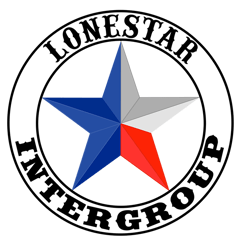

Adult Children of Alcoholics
& Dysfunctional Families
Lone Star Intergroup
Who does the Lone Star Intergroup service?
The Lone Star Intergroup is an organization made up of several Central Texas ACA groups. This includes groups from Austin, San Antonio, Georgetown, Waco, Corpus Christi and more.


What is ACA?
Adult Children of Alcoholics and Dysfunctional Families (ACA) is a 12 Step recovery program for individuals who grew up in alcoholic or dysfunctional homes. ACA is based on the belief that the disease of alcoholism and family dysfunction infected us as children and continues to affect us as adults.
What is an ”Adult Child?”
An adult child is someone who meets the demands of life with survival techniques learned as children. Without help, we unknowingly operate with ineffective thoughts and judgments that can sabotage our decisions and relationships.
Who Attends our Meetings?
ACA is not limited to those from alcoholic homes. If you identify with traits from The Laundry List, ACA might benefit you. In the meetings, we share what is happening in our lives, and how we are dealing with these issues in our recovery program. (i.e., share our experience, strength, and hope).
14 Traits of an Adult Child
(The Laundry List)
These are some characteristics we seem to have in common due to being brought up in an alcoholic or dysfunctional household.
1. We became isolated and afraid of people and authority figures.
2. We became approval seekers and lost our identity in the process.
3. We are frightened by angry people and any personal criticism.
4. We either become alcoholics, marry them, or both, or find another compulsive personality such as a workaholic to fulfill our sick abandonment needs.
5. We live life from the viewpoint of victims and are attracted by that weakness in our love and friendship relationships.
6. We have an overdeveloped sense of responsibility and it is easier for us to be concerned with others rather than ourselves; this enables us not to look too closely at our own faults, etc.
7. We get guilt feelings when we stand up for ourselves instead of giving in to others.
8. We become addicted to excitement.
9. We confuse love and pity and tend to “love” people we can “pity” and “rescue.”
10. We have “stuffed” our feelings from our traumatic childhoods and have lost the ability to feel or express our feelings because it hurts so much (denial).
11. We judge ourselves harshly and have a very low sense of self-esteem.
12. We are dependent personalities who are terrified of abandonment and will do anything to hold on to a relationship in order not to experience painful abandonment feelings which we received from living with sick people who were never there emotionally for us.
13. Alcoholism is a family disease and we became para-alcoholics* and took on the characteristics of that disease even though we did not pick up the drink.
14. Para-alcoholics** are reactors rather than actors.
Tony A.